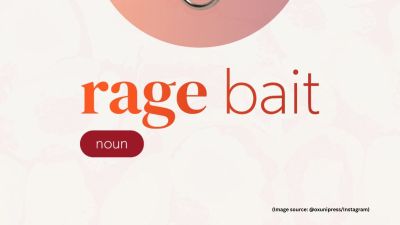Veerappan as a respectable businessman
I once had the privilege of meeting Robert Cooter, Professor of Law and Economics at the University of California, Berkeley. And, of course,...

I once had the privilege of meeting Robert Cooter, Professor of Law and Economics at the University of California, Berkeley. And, of course, I have carefully studied his textbook on Law and Economics.
What I remember most vividly about Cooter is that he told me ‘‘Law must not be made; it must be found.’’ How do I find law? I thought, and went through his textbook, two editions. And it is there that I found the answer: the chapter on property rights begins by quoting an eminent professor of law, who always began his classes by saying: ‘‘Out there in the forest, a doe has given birth to a little Bambi. The only question of law is: To whom does the Bambi belong?’’
The question could have been posed to Veerappan. Who owns the sandalwood in the tropical forests of southern India? If no one owns them, then does the Government own them? We must also note that these lush tropical forests are home to many prized hardwoods: teak, mahogany, rosewood grow abundantly here. Do all these belong to the Government?
Funny laws characterise socialism. The people own nothing; the state owns everything! Landlords get their houses stolen by tenants: rent control law. Entire enterprises get stolen by the state: Air India, banks, coal mines…Tribals in the jungles have no rights to property and are often driven out of their traditional homelands by forest officials — thereby causing Naxalism.
How would simple property rights — the moral basis of all just law — have helped?
Well, for one, Veerappan would have been a sandalwood farmer — not a brigand, and killing him would not have been an act of maintaining law and order. I once met a retired forest official who told me, in confidence, that Veerappan was actually doing the forest department’s work: for every sandalwood tree he cut down, he used to plant 50! I was present at a talk by Professor M Govinda Rao of the Bangalore-based Institute of Social and Economic Change where he bemoaned the fact that his sprawling campus was full of sandalwood trees, but he couldn’t sell them! If we apply property rights strictly, then every Kannadiga could plant a sandalwood tree in his house, cut it down when it matures, sell it, and with the proceeds send his child to Oxford! Kannadiga children wouldn’t need free mid-day meals from the Ministry of Human Resource Destruction!
State ownership of natural resources is actually a recipe for total disaster. Garret Hardin pointed out a phenomenon long ago called ‘the tragedy of the commons’. He found that whenever a resource is commonly owned, it gets ‘rationally’ destroyed. So, if there are 10 fishermen sharing a small pond, and if one nets a small fish, he won’t throw it back in the water because he will think that if he does so, he will not be the one to harvest it later when it is fully grown. He will ‘rationally’ think that there is no point conserving fish because if he doesn’t get them, the other fishermen will. This ‘rationality’ will ultimately destroy the common resource. We encounter tragedies of the commons all the time: No one will spit paan juice on his bedroom wall, but everyone will spit on the street, after all it is common property. Handing over all the forests and all the trees and all the wildlife to the State is bound to lead to a total environmental disaster.
It is only with property rights that every natural resource can be conserved. Veerappan also sold ivory. Zimbabwe refused to ban the ivory trade and handed over all the forests and the elephants to the jungle people. Soft-headed environmentalists predicted doom. But even these unlettered jungle people knew that they should not kill the goose that lays golden eggs. They allowed elephant hunting with a $50,000 fee. And they made sure that the mad Texans who came to hunt big game shot only the old ones, or the rogues. They farm ivory. And Zimbabwe is the only country in Africa whose elephant population is rising!
It is time — and Dussehra is nigh — to look closely at the concepts of good and evil. Who are the good people? And who are evil? The answer is simple: Good people earn through trade, even underground trade. So both the late Veerappan and Dawood are actually good. Bad people work for the Government. They do not earn money honestly, but by exploiting the laws that give them powers.
The writer is a senior journalist and freelance writer
- 01
- 02
- 03
- 04
- 05































